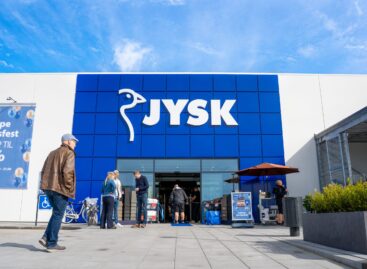KPMG: Female senior managers adapted surprisingly quickly to the polycrisis
Despite their increased workload, female senior managers are optimistic about company growth, social change, gender equality and their own careers. The majority have adapted to the current polycrisis and are trying to discover the opportunities inherent in it, concludes the KPMG Global Female Leaders Outlook research. Adaptability, foresight, flexibility – armed with these qualities, they shape their own and their company’s future.
 Nowadays, the word crisis alone is no longer sufficient to describe the situation in the world, since we have to face a polycrisis – several, often interrelated, risks at the same time. In addition to following digitization and ESG trends, companies must also become more resistant to geopolitical and economic challenges. However, the women participating in the KPMG Global Female Leaders Outlook survey bravely take on the task. In the research, 839 female managers from 53 countries were asked in 2023, among other things, about their company’s situation, business prospects, developments, their own careers, and their motivations.
Nowadays, the word crisis alone is no longer sufficient to describe the situation in the world, since we have to face a polycrisis – several, often interrelated, risks at the same time. In addition to following digitization and ESG trends, companies must also become more resistant to geopolitical and economic challenges. However, the women participating in the KPMG Global Female Leaders Outlook survey bravely take on the task. In the research, 839 female managers from 53 countries were asked in 2023, among other things, about their company’s situation, business prospects, developments, their own careers, and their motivations.
What are female leaders like?
The majority of female managers surveyed by KPMG work more than 50 hours per week and prefer a hybrid work model. Almost all of them run a household, every third respondent does so without external help. Most respondents have changed companies at least once in order to advance in their careers. 74 percent of the survey participants live in two-earner households, while 21 percent do not have a partner. 70 percent of the respondents are raising or have raised children.
Higher speed, increasing workload – there is a risk of burnout
The current polycrisis places a significant additional burden on female senior managers. 90 percent of the decision-makers surveyed by KPMG experienced that tasks and responsibilities have become much more complex in the past three years. 81 percent reported an increased workload and that their working days have become longer. According to 89 percent of them, the pace of work has accelerated due to continuous changes, and 78 percent perceive increasing uncertainty in strategic decisions and forecasts.
Related news
Cheese-cocoa-peach jam: these are the most popular cookie flavors
🎧 Hallgasd a cikket: Lejátszás Szünet Folytatás Leállítás Nyelv: Auto…
Read more >Hungarians don’t replace their furniture – JYSK research reveals a conscious, long-term planning market
🎧 Hallgasd a cikket: Lejátszás Szünet Folytatás Leállítás Nyelv: Auto…
Read more >Related news
No matter how much you save, food and gadgets always take the money
🎧 Hallgasd a cikket: Lejátszás Szünet Folytatás Leállítás Nyelv: Auto…
Read more >Historic price reduction at ALDI
🎧 Hallgasd a cikket: Lejátszás Szünet Folytatás Leállítás Nyelv: Auto…
Read more >








